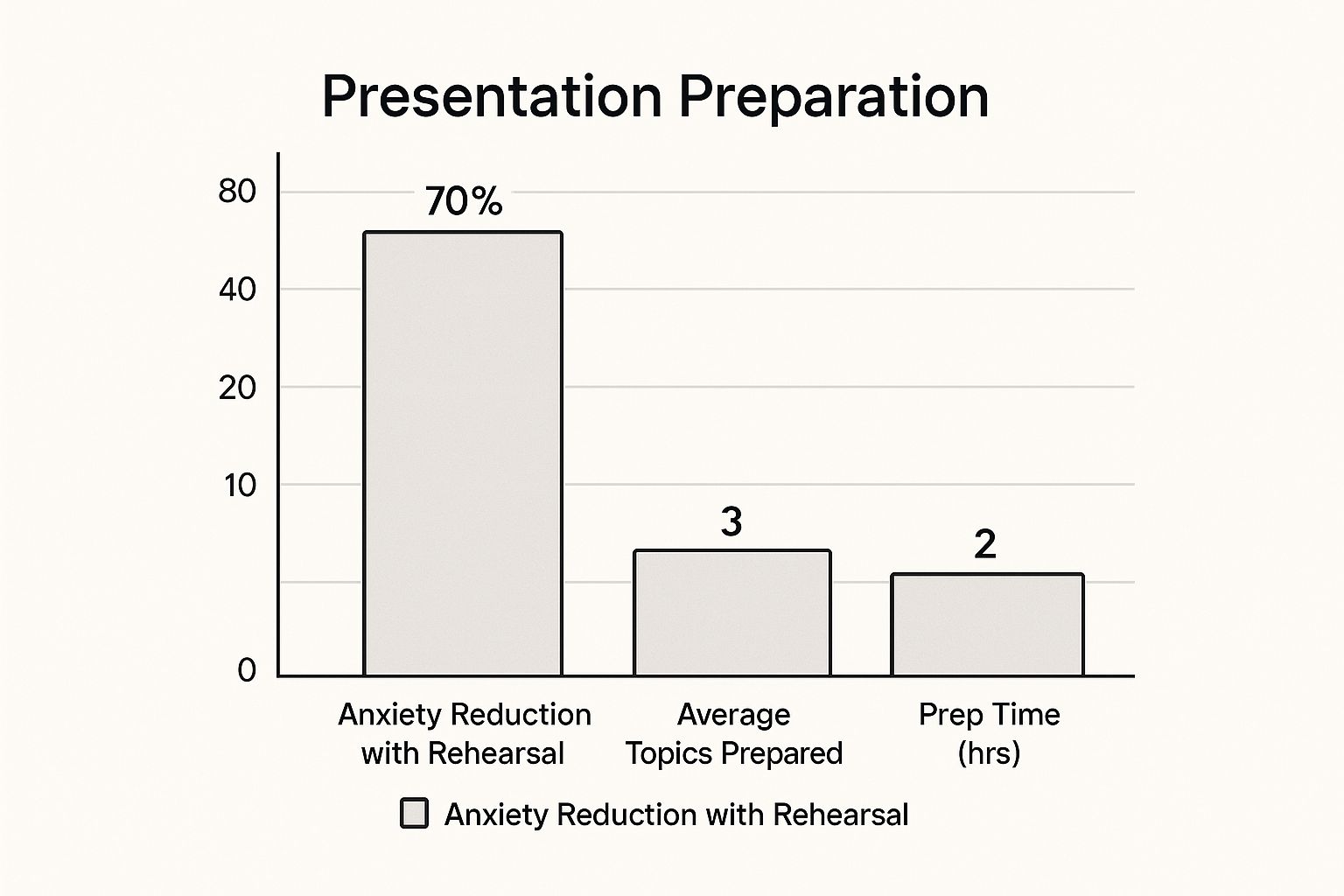Why Networking Feels Impossible (And It's Not Your Fault)

Let's face it: the usual "work the room" and "make small talk" networking advice feels unnatural to many of us. For introverts, it can be particularly draining. This is because traditional networking often clashes with how introverts naturally process social energy. Forcing yourself into these situations can feel awkward and uncomfortable. This can lead to feelings of inadequacy and reinforce the idea that networking is just "not for you."
But this isn't about being shy or antisocial. It's about understanding the fundamental differences in how people gain energy. Extroverts often thrive in stimulating environments, gaining energy from social interaction. Introverts, however, recharge through solitude and more focused conversations. The very activities that energize extroverts can leave introverts feeling depleted. But this doesn't mean introverts can't network effectively.
The Problem With "Fake It Till You Make It"
Traditional networking advice often encourages introverts to adopt an extroverted persona. This "fake it till you make it" approach rarely works and can be counterproductive. It forces introverts to expend energy pretending to be someone they're not, leading to exhaustion and frustration. This inauthenticity also makes it difficult to build genuine connections. You might find this article insightful: How to reinvent yourself.
Introversion Isn't a Flaw, It's a Strength
The good news? Your introversion isn't a liability; it's a hidden networking superpower. Introverts are often excellent listeners, deep thinkers, and skilled at building one-on-one relationships. These traits are invaluable in forging meaningful professional connections. This is especially important in a world often focused on superficial interactions.
Interestingly, research shows that despite being underrepresented in leadership positions, introverts excel in fields like marketing, using their analytical and introspective skills. Studies also show that professionals, regardless of introversion/extroversion, benefit from strategic networking, proving it's a learned skill vital for career growth. Learn more about the importance of strategic networking.
If traditional networking events feel overwhelming, helpful resources are available for your specific needs. Check out these practical networking tips for introverts. The key is to work with your natural wiring, not against it.
Learning From Introverts Who Actually Made It Work
Networking for introverts can sometimes feel challenging. The traditional image of someone "working a room" can clash with an introvert's preference for quieter, more thoughtful interactions. But success leaves clues, and many highly successful business leaders are introverts who have redefined networking in powerful ways. These inspiring individuals have found their own path to connection without sacrificing their authentic selves.
Leveraging Introverted Strengths
Rather than trying to become someone they’re not, introverted entrepreneurs have discovered how to use their natural strengths to their advantage. They understand that their preference for smaller, more focused conversations allows them to build genuine connections with real depth. They've also learned to embrace their active listening skills, allowing them to truly understand the needs and perspectives of the people they meet.
Introverted leaders also tend to excel at preparation. They approach networking strategically, researching individuals and topics in advance. This thoughtful preparation helps them participate in meaningful conversations rather than resorting to surface-level small talk. The infographic below illustrates how preparation can reduce anxiety and improve the quality of interactions:

As the infographic shows, rehearsing key talking points can decrease anxiety by 70%, while preparing around three discussion topics beforehand can contribute to more engaging conversations. This focused preparation typically requires just two hours of effort, proving that strategic networking doesn’t have to be time-consuming. You might find value in exploring further: How to master personal branding by reading great books.
Real-World Examples of Introverted Success
This strategic approach to networking has resulted in incredible achievements for many introverted leaders. Contrary to popular belief, introversion is not a barrier to networking success. In fact, many prominent entrepreneurs known for their business acumen are introverts. Think of Larry Page of Google, Bill Gates of Microsoft, Warren Buffett of Berkshire Hathaway, Mark Zuckerberg of Facebook, and Elon Musk of Tesla and SpaceX.
These leaders demonstrate that introversion can be a significant advantage in networking. They’ve leveraged their strengths, such as strategic planning and thoughtful communication, to forge impactful connections. Discover more inspiring introverted networking success stories.
To help you visualize the unique networking strengths of introverts, let's look at a comparison table:
Introvert vs Extrovert Networking Strengths Comparison: A detailed comparison showing the unique networking advantages that introverts possess compared to extroverts, helping readers understand their natural strengths.
| Networking Aspect | Introvert Strengths | Extrovert Strengths | Best Strategy for Introverts |
|---|---|---|---|
| Building Relationships | Deep, meaningful connections with a few key people | Wide network of contacts | Focus on quality over quantity. Nurture a smaller circle of strong connections. |
| Communication Style | Thoughtful, insightful conversations | Energetic, engaging interactions | Prepare talking points in advance. Leverage active listening skills to understand others' needs. |
| Approach to Events | Strategic, focused networking | Comfortable in large groups and social settings | Attend smaller events or find quieter spaces within larger events to connect with individuals. |
| Follow-Up | Personalized, meaningful communication | Proactive and frequent outreach | Send thoughtful follow-up messages that demonstrate genuine interest. |
This table highlights how introverts and extroverts can excel in networking by leveraging their individual strengths. Introverts can build powerful networks by focusing on building deep, meaningful relationships through strategic preparation and thoughtful communication.
Creating Networking Opportunities That Actually Energize You

Traditional networking events can be exhausting, especially for introverts. But networking doesn't have to be a dreaded task. Instead of forcing yourself into extrovert-centric environments, create opportunities that play to your strengths and leave you feeling inspired. Focus on meaningful connections rather than collecting a stack of business cards. Build an atmosphere where genuine relationships can thrive.
Designing Your Ideal Networking Scenario
Take charge of your networking experience. Consider organizing industry roundtables centered around a niche topic in your field. This not only lets you guide the conversation, but also positions you as a thought leader and connector. For tips on building your personal brand, check out this helpful resource: How to create a personal brand.
Hosting smaller, intimate mastermind groups can also be incredibly beneficial. These groups offer a comfortable setting for deep discussions, allowing you to connect with like-minded professionals on a more substantial level. These focused interactions can blossom into valuable, long-term professional relationships.
Leveraging Your Natural Strengths
Another powerful approach is volunteering at conferences or leading educational workshops. These activities provide structured networking situations where you can share your expertise and connect with attendees organically. Volunteering to moderate a Q&A session or facilitating a small group discussion are excellent ways to foster authentic engagement.
There’s a growing understanding that networking shouldn't feel forced or superficial. Introverts can design their own networking experiences tailored to their unique strengths. Organizing or volunteering at events makes networking more approachable and enjoyable, allowing introverts to build meaningful connections without the pressure of large crowds. Learn more about networking for introverts here.
By creating these targeted networking opportunities, you’re not just showing up; you're actively shaping the experience. This empowers you to build your network strategically, connecting with people who genuinely share your interests and professional aspirations. This proactive approach transforms networking from a passive obligation into an energizing experience that fuels your career growth.
Mastering Digital Networking Without The Awkwardness
The digital age offers introverts a powerful advantage: the ability to connect authentically and strategically, bypassing the sometimes overwhelming nature of traditional networking events. Embrace your strengths as a thoughtful communicator and build stronger relationships online. Let's explore how.
LinkedIn: Building Your Professional Presence
LinkedIn is a powerful tool for introverts. It's a platform designed for meaningful engagement, not fleeting small talk. Begin by crafting a compelling profile that truly showcases your unique skills and experience. Highlight your value proposition. Join relevant industry groups and actively participate in discussions, sharing your insights. Remember, quality over quantity matters most. Focus on engaging deeply with a few key individuals rather than trying to connect with everyone.
Twitter: Engaging in Thought-Provoking Conversations
Twitter empowers introverts to connect with a broader audience and share their expertise through the written word. This is where your natural strength as a thoughtful communicator truly shines. Participate in insightful discussions, share valuable articles, and contribute to relevant hashtags. Use Twitter to follow industry leaders, stay informed about current trends, and connect with like-minded professionals.
Industry-Specific Platforms: Finding Your Niche
Beyond LinkedIn and Twitter, consider exploring niche platforms tailored to your industry. These platforms offer a focused space to connect with individuals who share your specific professional interests and goals. This is particularly beneficial for fields like graphic design, content writing, and coding. Seek out relevant forums and communities where you can participate in discussions and demonstrate your expertise.
Content Creation: Attracting Connections Organically
Creating valuable content is a powerful magnet for attracting organic connections. Sharing your knowledge through blog posts, articles, or videos positions you as a thought leader and draws potential collaborators, mentors, and industry contacts to you. It also provides rich conversation starters for future networking opportunities.
Transitioning From Digital to Lasting Connections
While digital platforms are invaluable for initiating contact, nurturing these online connections into lasting professional relationships is essential. Once you've established rapport online, don't hesitate to propose a virtual coffee chat or a brief phone call. This personal touch strengthens the bond and deepens the connection. Remember, even in the digital realm, authenticity is paramount. By being yourself and engaging genuinely, you can cultivate a supportive network that will benefit your career for years to come.
Turning One-On-One Conversations Into Career Gold

While large networking events can feel overwhelming, introverts often thrive in one-on-one conversations. This is where your ability to truly listen and connect deeply with others comes to the forefront. These focused interactions are the building blocks of authentic and meaningful professional relationships. Let's explore how to transform these individual conversations into career gold.
Initiating and Structuring One-on-One Meetings
Starting a one-on-one conversation doesn't have to be complicated. It can be as simple as expressing genuine interest in someone's work. A thoughtful comment on a LinkedIn post or a short, introductory email can be a great first step. When suggesting a meeting, propose a specific topic, such as discussing a shared industry challenge or exploring potential collaborations. This focused approach makes the invitation more enticing and allows both parties to prepare effectively.
Practical Techniques for Meaningful Interactions
Whether you're meeting for coffee, chatting on the phone, or connecting through video, the principles of engaging one-on-one remain the same. Prepare a few open-ended questions to encourage the other person to share their experiences and insights. For introverts navigating the world of digital networking, exploring remote team communication tips can be incredibly helpful. Active listening is paramount. Concentrate on truly understanding what the other person is saying, not just waiting for your turn to speak. Remember, genuine connection always surpasses scripted perfection.
The Art of the Follow-Up
Following up after a conversation is crucial for building a strong relationship. A personalized email thanking the person for their time and mentioning something specific you discussed is a powerful way to stay top-of-mind. Perhaps you’re looking to change your career direction? You might be interested in learning how to pivot careers. This thoughtful gesture shows your attentiveness and reinforces the connection. Consider offering to share relevant resources or connecting them with someone in your network who could be of assistance to them.
To help you navigate various networking situations, the following table provides practical conversation starters and follow-up strategies. It's designed to empower introverts to confidently initiate and maintain valuable professional connections.
Networking Conversation Starters for Different Situations
| Situation | Opening Line | Follow-up Questions | Exit Strategy |
|---|---|---|---|
| Industry Conference | "I really enjoyed your presentation on X. What inspired you to focus on that aspect?" | "What are some of the biggest challenges you see in the industry right now?" "Are you working on any other exciting projects you can share?" | "It was great speaking with you. I'd love to connect on LinkedIn to continue this conversation." |
| Online Networking Event | "I noticed you're also interested in Y. I've been exploring it recently, and I'd love to hear your perspective." | "What resources have you found most helpful in learning about Y?" "Are there any online communities you recommend joining?" | "Thanks for the insightful conversation. I'm going to check out Z resource you mentioned. Let's connect on LinkedIn." |
| Casual Coffee Chat | "I've heard great things about your work at Company Z. What do you enjoy most about it?" | "What are some of the biggest opportunities you see in your field?" "How do you stay up-to-date with industry trends?" | "This was a fantastic conversation. I appreciate you sharing your insights. Let's stay in touch." |
Remember, the key is to be authentic and genuinely interested in the other person. Use these suggestions as a starting point, and tailor them to fit your own personality and the specific situation.
Positioning Conversations for Mutual Value
One-on-one conversations are most effective when they are mutually beneficial. Approaching these interactions with a mindset of offering value to the other person creates a positive and engaging experience. Think about what you can contribute, whether it's your expertise, insights, or connections. This ensures that the conversation isn't solely focused on you, but rather on creating a valuable exchange for both parties. This approach leaves a lasting positive impression and makes people genuinely want to connect with you. By mastering the art of one-on-one conversations, introverts can cultivate strong, enduring professional relationships that are instrumental in achieving career success.
Protecting Your Energy While Building Your Network
Networking. It's vital for career growth, but it can be especially challenging for introverts. Even with a strategic approach, the social demands can be draining. The key to sustainable networking isn't pushing through exhaustion; it's about understanding and respecting your individual energy patterns. This means consciously managing your networking activities to avoid burnout and truly benefit from your efforts.
Recognizing Your Networking Capacity
Just as athletes understand their physical limits, introverts need to be aware of their networking capacity. This involves honestly assessing how much social interaction you can handle before feeling depleted. For some, an hour of networking is manageable. Others might hit their limit after just 20 minutes. Knowing your capacity is the first step toward protecting your valuable energy.
Strategic Scheduling and Recovery
Once you understand your limits, schedule networking activities strategically, during your peak performance times. Are you most energized in the mornings? Then schedule a coffee meeting then. Don't force yourself to attend an evening event if your energy levels typically dip later in the day. Just as important is scheduling recovery time after any networking. This could be quiet time alone, pursuing a relaxing hobby, or simply taking a break from social demands.
Setting Healthy Boundaries
Setting boundaries is absolutely essential for introverts. This could mean limiting the number of networking events you attend each month. It might involve declining invitations when you're feeling depleted. Or perhaps taking strategic breaks during events. For instance, if you're at a conference, stepping away from the crowd for a few minutes can help you recharge before rejoining the conversation. This will allow you to maintain your energy and engage more effectively when you are networking.
Being Honest About Your Networking Style
Don't feel pressured to conform to extroverted networking norms. Be honest with your colleagues and clients about your preferences. This might mean suggesting a one-on-one meeting rather than a large group gathering. Or perhaps explaining that you prefer email communication for initial contact. This honesty empowers you to build genuine relationships in ways that feel authentic and, crucially, sustainable. By managing your energy effectively, you can create a networking schedule that supports your career goals without leading to burnout or the dreaded "networking hangover." This, in turn, allows you to network strategically and build the kind of meaningful connections that truly benefit your career.
Building A Network That Works For Your Career Long-Term
Effective networking for introverts isn't about collecting countless business cards or amassing a huge number of LinkedIn connections. It's about cultivating genuine, mutually beneficial relationships that will enrich your career journey over the long term. This means shifting your focus from fleeting interactions to nurturing authentic connections built to last.
Nurturing Your Network With Strategic Touchpoints
Meaningful connections require a strategic approach, not constant socializing. Consider implementing a system for regular, thoughtful communication. This could involve sending personalized emails every few months, sharing relevant articles, or simply checking in with a brief message. The key is to maintain contact authentically. For introverts, this often translates to prioritizing quality over quantity. A smaller circle of strong connections is often much more valuable than a large, superficial network.
Providing Value That Aligns With Your Strengths
As an introvert, you have unique strengths to offer your network. Perhaps you’re a gifted writer, a strategic thinker, or an exceptional listener. Identify your core strengths and explore how you can use them to benefit your connections. This could involve offering helpful advice, sharing insightful resources, or making strategic introductions. By providing genuine value, you become a sought-after connection, someone others actively want to engage with. Learn more about showcasing your strengths in our article about How to master your personal marketing plan.
Creating Sustainable Systems For Staying In Touch
Staying connected doesn't have to be a chore. Design systems that feel natural and align with your preferred communication style. Perhaps you favor email over phone calls, or enjoy connecting through online communities. Find what works for you and build a sustainable system that allows you to maintain contact without feeling overwhelmed. This could involve scheduling dedicated time for networking, using a CRM to manage interactions, or creating templates for follow-up messages.
Building a Reputation as a Thoughtful Professional
By consistently providing value and maintaining genuine connections, you cultivate a reputation as a thoughtful and reliable professional. This establishes you as someone others trust and respect, someone they seek out for advice and collaboration. This organic networking approach is far more effective than forced interactions, and allows you to build a strong professional reputation over time. This means when you do need to call upon your network, you can do so confidently, knowing you’ve built authentic relationships based on mutual respect and shared value.
Ready to elevate your personal brand and career? Explore the resources available on Henri Den to discover how to build a thriving career aligned with your authentic self.





